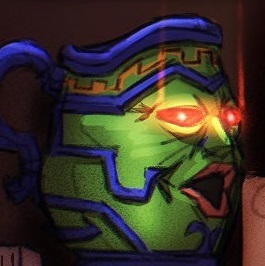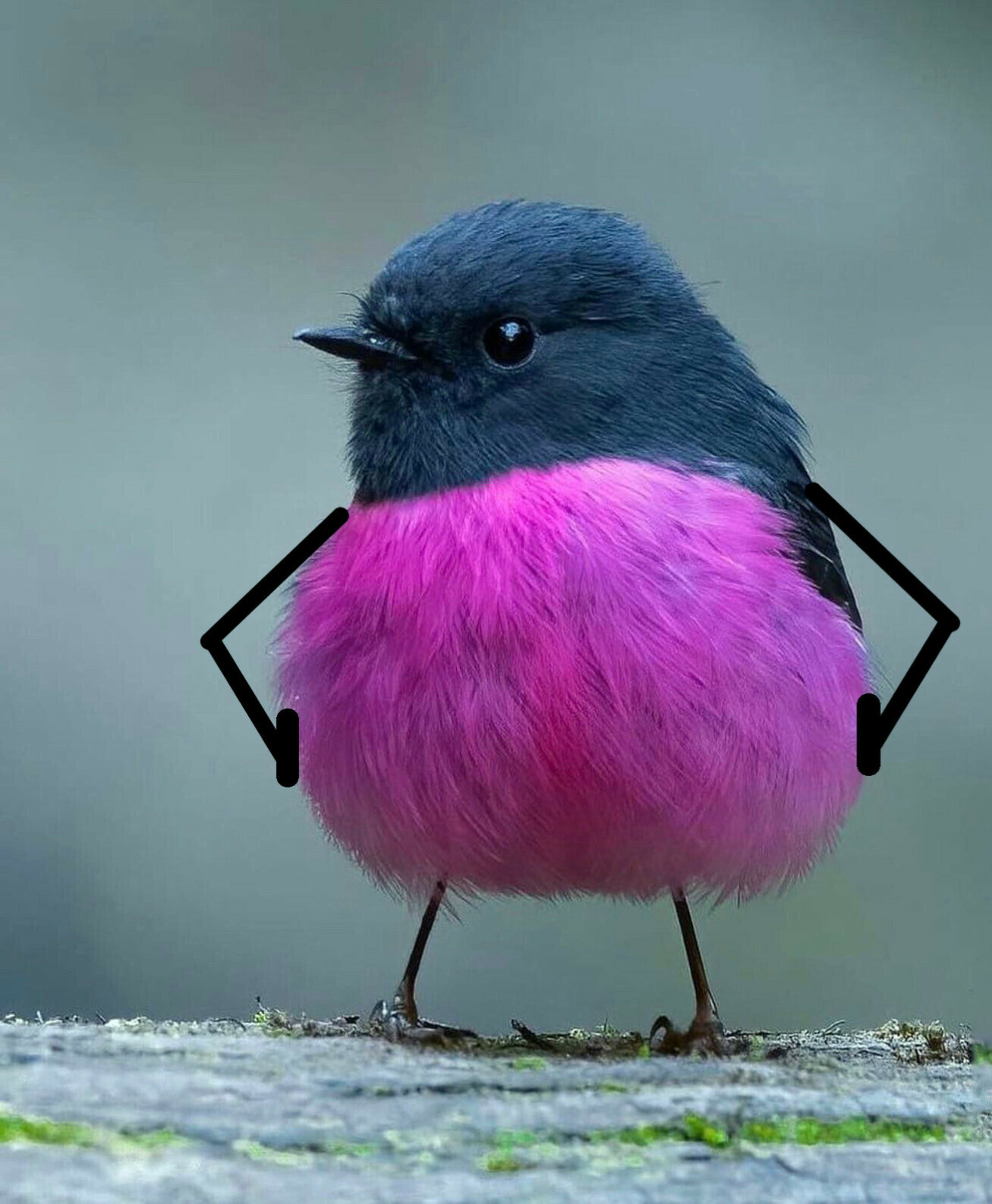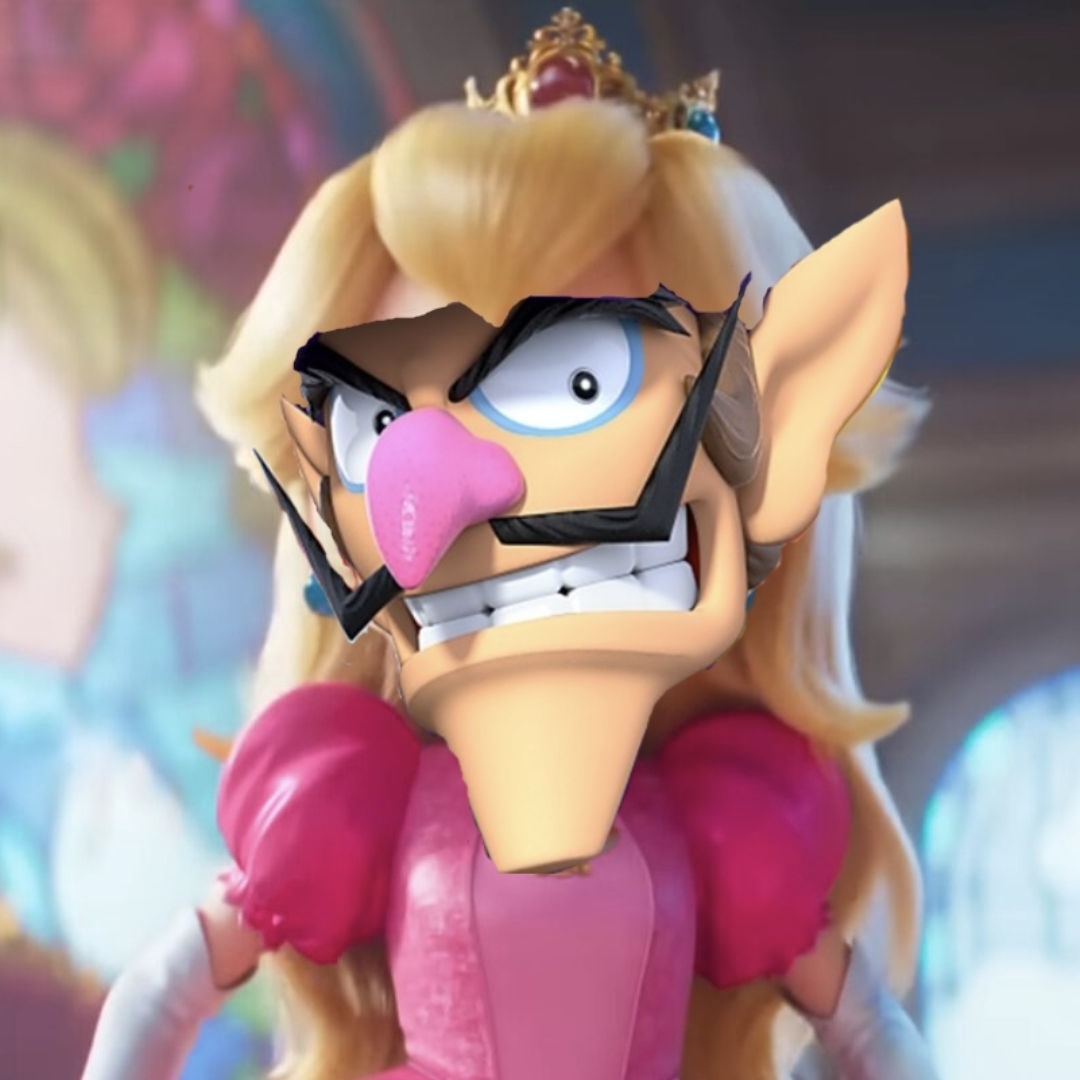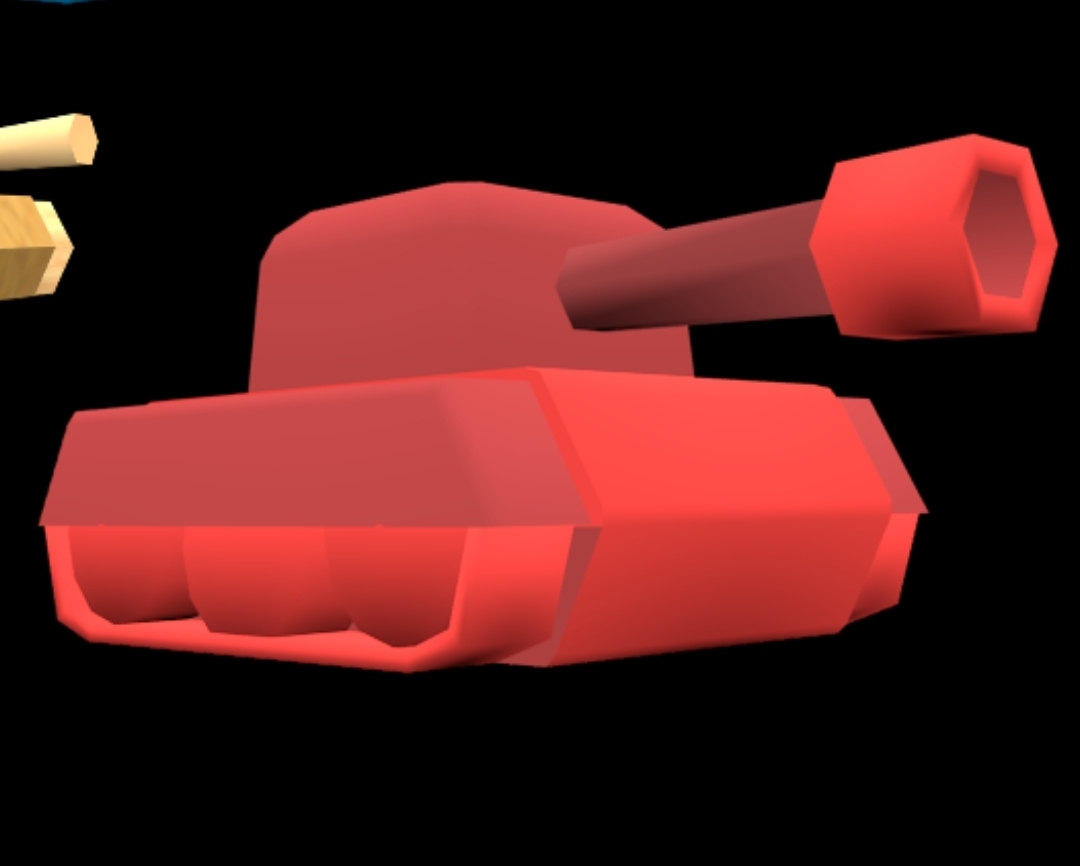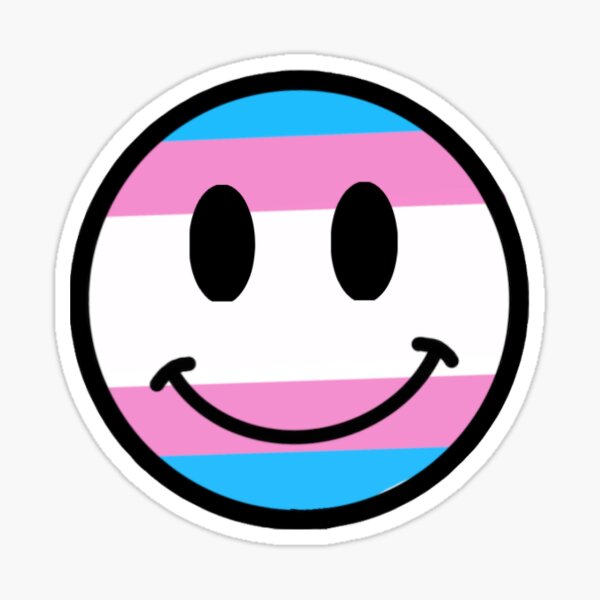Hello comrades, it's time for our FINAL discussion thread for The Will to Change, covering Chapters 10 (Reclaiming Male Integrity), 11 (Loving Men) and the book as a whole. Thanks to everyone who's participated over the last couple months, I’m looking forward to hearing everyone’s thoughts again. And if you haven't started the book yet but would like to, this thread will stay pinned for a while so you can share your thoughts as you read!
As we reflect on the book as a whole, there are a few questions I'm curious to hear everyone's answers for:
-
What was your biggest takeaway from reading The Will to Change?
-
How has the book's material and hooks' insights affected your everyday life?
-
How can we apply hooks' lessons on healthy, non-patriarchal masculinity to improve the site culture of Hexbear?
If you haven't read the book yet but would like to, its available free on the Internet Archive in text form, as well as an audiobook on Youtube with content warnings at the start of each chapter, courtesy of the Anarchist Audio Library, and as an audiobook on our very own TankieTube! (note: the YT version is missing the Preface but the Tankietube version has it)
After this I would like to host another book club, probably here on /c/menby but it depends on what exactly we read. Please share any suggestions you have for books below!
An upward swing in tone for the last chapters.
Chapter 10, with its discussions on workaholism, the internal lies supporting patriarchal views of men and masculinity within us, and how we can't be "whole" without rejecting it, is very healing in a way. It's a diagnosis and a cure all in one. As a pan dude, the bit on queer men being especially targeted is something I can personally attest to. As a kid, I was always berated for "acting gay" (something I am sure others here can certainly attest to), and that continues to today. This always struck me as especially odd ever since I was a kid, because what was wrong with acting how I was? Was there something wrong with my "true self?" I would mask and hide, and this led to an utter lack of confidence growing up.
Chapter 11, understandably, was a nice bow on top. It's a celebration of "the good men" and a model to follow, to will to change into. Really, this was a great positive note to leave off on. The discussions of passionate love vs the drive for casual sex was interesting to me as well, and kind of reminds me of Kollontai's writings on"Winged Eros," as opposed to "Wingless Eros." A really warming chapter overall, after showing just how patriarchy constrains and constricts everyone, men and women alike, Chapter 11 shows us what we can live like and how we can act, and paints it in a beautiful way.
Overall, really enjoyed reading this, and can't wait for the next one! Hopefully I will get better at discussing by then, haha.
Thanks for leading this, @MiraculousMM@hexbear.net !
 DISCUSSION TIME!
DISCUSSION TIME! 
Thank you so much to everyone who's been part of this book club, I plan to do more of them so let me know if you'd like to stay on the ping list for future readings!
@Farvana@lemmygrad.ml @FactuallyUnscrupulou@hexbear.net @Rojo27@hexbear.net @hotcouchguy@hexbear.net @ObamaSama@hexbear.net @frauddogg@hexbear.net @whatnots@hexbear.net @CaliforniaSpectre@hexbear.net @wtypstanaccount04@hexbear.net @Lalutacontinua@hexbear.net @NewOldGuard@hexbear.net @Volcatile@hexbear.net @Sulvor@hexbear.net @sewer_rat_420@hexbear.net @Frank@hexbear.net @Chronicon@hexbear.net @PM_ME_YOUR_FOUCAULTS@hexbear.net @Red_Sunshine_Over_Florida@hexbear.net @Melonius@hexbear.net @ped_xing@hexbear.net @comrade_pibb@hexbear.net @woodenghost@hexbear.net @peppersky@hexbear.net @Cowbee@hexbear.net @MaoTheLawn@hexbear.net @Lemmygradwontallowme@hexbear.net @bdazman@hexbear.net @Real_User@hexbear.net @LGOrcStreetSamurai@hexbear.net @real@hexbear.net @OgdenTO@hexbear.net @RedWizard@hexbear.net @PaX@hexbear.net @DerRedMax@hexbear.net @PKMKII@hexbear.net @PurrLure@hexbear.net @TheLepidopterists@hexbear.net @courier8377@hexbear.net @Seasonal_Peace@hexbear.net @FumpyAer@hexbear.net @Latework@hexbear.net @BrezhnevsEyebrows@hexbear.net @Esoteir@hexbear.net @Cloudx189@hexbear.net @carpoftruth@hexbear.net @BobDole@hexbear.net @vovchik_ilich@hexbear.net @NotThatKindOfFedPosting@hexbear.net @HexaSnoot@hexbear.net @sempersigh@hexbear.net @Barabas@hexbear.net @dumples@midwest.social @PerryGirl@hexbear.net
So, I read this a bit late to take part in the weekly thing, but damn was this an important read.
The biggest takeaway for me was the fundamental understanding of how boys are raised and how emotions get suppressed and how we get anger on top. The way this ties to nationalism, militarism, relationships.
I have raised a boy. With a man who has shown a lot of the issues the book talks about and over time managed to expel a lot of them. And I grew up as a woman who was kind of raised as her fathers first son, if that makes sense.
I huge thing for me personally was coming face to face with my own pathriarchal issues while reading this. I remember feeling apprehensive when my son wanted to hold my hand in public when he was fairly old. I never turned him away and did notice it at the time, but this book helped me understand what it was that I was feeling and how utterly violent that is.
The same with noticing how I have definitely felt frustrated with my parther for not "being a man" in the past, our relationship has always been very reversed from the norm. My feminine masculinity definitely has a lot of this toxicity in it.
And the part about the penis as a weapon was so important for a SA victim like myself and also again, for someone having raised a boy in this world.
So much more as well, but I have limited time atm and it's hard to articulate. But this was lifechanging. My partner is now reading it.
I really appreciate how easy this book is to go through, and how gentle it is for men even though I dont feel like a lot of men deserve that kindness (maybe myself included)
- my initial biggest takeaway was just how pervasive patriarchy is in all things. Its inescapable, even when the source is unintentionally perpetuating it. Realizing that family, society, media pushed masculine expectations on to me, whether intentionally or not, has made me have to reexamine a lot of my personality that I feel is pretty foundational in who I am. Maybe not always negatively, but they are parts of me that I accepted uncritically because I was supposed to, not because I wanted to.
Its also much more clear how very strongly intertwined capitalism and patriarchy are. Being emotionless beasts who give pats on the head to good performance and unbridled unempathetic anger to missing expectations is a perfectly binary cog in the profit machine. Everything that makes us human gunks up the machine, so as long as we can put on our Man Mask at work were doing a great job. Women are expected to do this too, if they want to advance.
- Finding out all this so late in my life is a little crushing but I can at least try to raise my kids without those toxic expectations. I have already had to talk to my parents about how they interact with their grandchildren and Im positive it will get more complicated as they age. Something that has helped me is labelling my emotions in front of my kids and partner. Instead of falling back on anger or more commonly some cold emotionless numbness, I try to say "That made me feel sad." I also try to check in on other peoples feelings because I will usually notice when someones in a certain mood but I try to dance around it rather than engage with it - even good moods.
- Elephant in the room question - reading all the struggle session posts makes me feel guilty even though I rarely post and dont think i've posted anything hugely reactionary, but dwelling on it some more I think being silent is part of the problem. I have seen some misogynistic posts on here and just kept moving on. I think all users should make it a point to correct them or at least tell the user to clarify what they said as it comes off mysogynistic or promotes toxic masculinity. And at least reporting the stray hitlerites that wander in from other instances.
That being said this site is really great and we can always do better. I feel like I don't have a lot of ways we as a community can improve without everyone saying theyll try to carry some of the mental load we leave to the power posters and mods.
Thanks for hosting this the book is great for rereading and dewormed my brain a lot. I wish I could have been more active but I did appreciate reading everyone elses comments.
As far as takeaways go, the biggest ones were the emotional suppression bits and how mothers reproduce patriarchy in their sons. They were most useful in understanding my own upbringing.
I havent really changed my day to day I dont think i can actually shut down the emotional suppression. I kind of need it to function. I don't really get to dominate often closest i can think of is competitive gaming, but thats kind of the point of competing.
I havent really changed my day to day I dont think i can actually shut down the emotional suppression. I kind of need it to function.
It took me years of therapy, but looking back on it it feels like I just started a few months ago. The time flies and the hardest part was getting started and keeping to my schedule. The actual emotional work was hard, but my therapist was good about breaking everything up into easily digestible chunks so that no one week’s worth of work even felt consequential, let alone burdensome. But the sum of all that work is I’ve undone a LOT of repression (and came out as trans but ymmv)
Excellent last 2 chapters, I was particularly moved by her description of compartmentalization in the masc mind. I can identify so many examples of that in my own life and way of looking at things, too many to even count. Mentally separating aspects of your life in that way allows a lot of reactionary attitudes and actions to breed and I want to kill those parts of my psyche for the sake of my comrades and myself.
As far as my own questions I posed in the OP:
What was your biggest takeaway from reading The Will to Change?
For me its the idea that it's impossible to be emotionally and spiritually whole without being vulnerable. It's so hard to do so when you're in your 30s and have been conditioned from day one to suppress and deny and push down your feelings. I've talked before about my desire to go to therapy again and I know that's a great first step, but even just simple things like being emotionally honest and vulnerable with my own (masc) friends feels like a huge challenge because they received the same patriarchal conditioning that I did and are extremely averse to open honest discussions of difficult emotions. I'm hoping I can convince a few of them to read this book because it'd be a great jumping off point for starting that discussion.
How has the book's material and hooks' insights affected your everyday life?
The most immediate change for me was learning to be less afraid of expressing my true self and being authentic to the little boy inside of me who loves people and hates bigotry. I still have a long ways to go with this but even before reading the book I was bursting at the seams to take up more space and assert what I know is true and right. I've lived alone for the last several years and that isolation has definitely not helped me in that regard. I feel more fearful and more disconnected from people than maybe any other time in my life and I want to change that.
The other big change is how I see the effects of patriarchy EVERYWHERE now after reading hooks' description of what patriarchy is and how it manifests. In media, in everyday life, around the internet, and even here on the hexagonal bear site. Once the problem is diagnosed and explained so beautifully, it's like putting on the They Live glasses. I'm especially aware now of the more subtle, insidious ways patriarchy manifests, which are even more common and widespread than the really obvious stuff like domestic violence and blatant erosion of women's political rights.
How can we apply hooks' lessons on healthy, non-patriarchal masculinity to improve the site culture of Hexbear?
Many of hooks' points about masc fragility and the "dominator model" of relationships are things I see from many masc users here on HB. An unwillingness to listen, hiding deeply entrenched negative emotions behind a veneer of hostility and anger, and a general aversion to self-critique or any conception that maybe they're holding onto deeply reactionary, violent ideas that patriarchy programmed into them. Unfortunately a lot of these same users lack "the will to change" and I'm not really sure how to resolve that. hooks is abundantly clear that even though non-masc people are an important part of the healing process, mascs must ultimately choose change for themselves. Our heavier moderation against misogyny has definitely helped, but only in the sense that reactionary users are removed from the space. How do we change the hearts and minds of people who have absolutely no interest in personal growth?
For my part I feel the best thing I can do is set an example. I have to believe there is some positive effect for a user with he/him pronouns like myself acting distinctly unpatriarchal, that attempting to be something resembling a role model has the potential to inspire other mascs to positive change. Or maybe they'll just call me a 1984 authoritarian cop when I call them out on their bullshit. Either way, challenging patriarchy on HB is a community effort, not something one individual can fix on their own. So I deeply appreciate everyone who's come on this journey through feminist theory and I'm very curious to hear others thoughts on what we can do better

- Although i wasnt beaten terribly or anything awful, and i do receive love and support from my father, patriarchal norms still negatively affect me and my mental health greatly. Luckily, i can continue doing the work of caring for my emotional self and practice compassion for others, and open up emotionally especially to other men, to directly combat the patriarchy.
- It has informed how i can improve my relationships. It has lessened the mental load of needing to measure up to patriarchal norms and gives me permission to focus on my own well being.
- It is hard to moderate out misogyny. It is present in every one of us since birth. But there are probably some guidelines that dont overly punish people that are trying in good faith. Practice compassion for the posters as well as the subjects of posting. For instance if someone is posting about some chud, but is using misogyny, we can educate that misogyny is not an avenue we need to use and we can still have compassion for the chud we are dunking on. But also, any hint of bad fath misogynistic argument should still be immediately removed. This book is a great resource to reeducate those that are good faith but also dont understand their misogyny.
I would recommend this book to just about anyone, but especially men or those that love men or are in relationships with men.
Also, i am here for the next menby book club though i have no suggestions
I just wanted to thank you for doing this reading session, although I haven't participated I've started catching up thanks to the last thread, and it's an amazing book that is helping me a lot
First of all, thanks to you for hosting this and to everybody else for participating. It was fun to be part of our little reading circle and the perspectives from other users were both insightful and often deeply moving.
Regarding your questions:
- What was your biggest takeaway from reading The Will to Change?
I've found the concept of patriarchal masculinity to be a very useful puzzle piece for my feminist theory and praxis. It actually works really well with my core takeaway from the Gender Accelarationist Manifesto, which is to seperate gender as a class, as a system of control and something assigned to oneself by others from gender as an identity, as a self-determined performance and a freely chosen role.
It was also interesting to see the subject of masculinity tackled from the perspective of a heterosexual woman, to understand that my straight sisters need good men in their life and that our struggle must involve creating a society in which they can find love with non-patriarchal men. As a t4t lesbian, it's easy to forget that not all women have the comfort of dating in a bubble of people they see eye to eye with. As somebody who's found closeness and intimacy with what hooks would describe as spiritually whole, intact people connected to themselves, i want my experience to be attainable to everybody. A lot of what she's written about sex and love is part of my day to day reality and i want to see a world where that's normal for people of all genders and sexualities, where everybody can build relations freed from the damage done by patriarchy.
- How has the book's material and hooks' insights affected your everyday life?
I've already used some of the book's core points in discussions about patriarchy, it helps to move past blaming an essentialist notion of masculinity and getting to the core of the problem. I absolutely see the use of visionary feminism, it's a very helpful approach. It has also made a lot of the intersections between patriarchy, capitalism, racism and imperialism more clear.
I'm also glad that so many men here have found the reading to be a healing experience. I know, albeit in a different way, what it's like to rebuild and heal yourself after decades of denying yourself. i've long wondered how that can be made possible for cis men who cannot take my radical approach of completely discarding to live in a male role, and i think hooks shows some ways in which this is possible.
- How can we apply hooks' lessons on healthy, non-patriarchal masculinity to improve the site culture of Hexbear?
We should strive to make this place a working support structure where people can be open and vulnerable without fear of reprisal and judgement. hooks focuses a lot on personal relationships between men and women and that's an important aspect, but i've found in my own journey that it is very useful to have communities where people share emotional labor to help those who need to vent and unburden themselves. Because it is work to listen to somebody who needs to get something off their chest or to outright trauma dump. When we help others in such situations, when we are empathetical and offer a shoulder to lean on, we take on some of their pain and that can take a toll. This is why communal support structures are so important. A lot of men can only open up with their partner and that means she has to do all the work in helping and comforting her loved one. When we build safer, more supportive communites, we can distribute that work, create spaces where people who have the spoons to offer help can freely opt in to do so. I'm fortunate enough to be in such spaces, and i see how much good it can do. This site should become more of such a space, too.
Lastly, i also want to add one caveat in applying hook's theories. I understand that she argues within a long-standing discourse that has overfocussed on an essentializing hatred of men (and of people TERFs falsely believe to be men, or "to have gone through male socialization"). Understanding that patriarchal masculinity is not an essential, uncurable condition, but something that can be overcome is a crucial and important insight. However, we should not exonerate those who lack the will to change. There's too many men out there who show no interest in bettering themselves, and i have seen in the past. on this site, that both hook's work and a critique of gender essentialism have been used in bad faith. We need to be watchful of actors who try to shield themselves and other patriarchal men from criticism by misrepresenting, instrumentalizing and weaponizing these ideas.
Is anyone aware of a mandarin version of the book? I wasn’t able to find anything on Google and it doesn’t seem like there’s an “official” translation out there
Going to be posting some thoughts once I finish the last two chapters today. But I just wanted to say thanks for this. Its really made me think a lot about what masculinity is within our patriarchal society.
What was your biggest takeaway from reading The Will to Change?
One of the biggest things to realize about patriarchy is that it affects everyone. And if everyone isn't liberated from patriarchy's grips then liberation will not happen. I think it just speaks to a lot of what is discussed in so far as being better intersectional comrades. We can't leave anyone behind because the system consumes everything in order to survive. Obviously not everyone will be open to it, but we can't always take the stubbornness of individuals to be the refusal of an entire group of people to change.
How has the book's material and hooks' insights affected your everyday life?
I've really been thinking a lot about being more in tune and expressive about my emotions. I get that longing for love in particular. As I said in an earlier chapter discussion, my relationship with my dad wasn't always the best, but talking about it with my mom recently kind of put me on the path of really looking into what my relationship with him and other people in my life was/is lacking. I'm taking baby steps to open up to people more and reading this book has solidified my desire to do just that. And I want not just to change my self, but hopefully help others see a world that isn't about adhering to patriarchal notions of relationships.
How can we apply hooks' lessons on healthy, non-patriarchal masculinity to improve the site culture of Hexbear?
Its kind of tough to say. Maybe having a space where we can continue to discuss and think of ways to apply these lessons could be helpful. I just feel like there's only so much you can do on an online space.
Quotes from Chpt. 10
Individuals without Integrity naturally compartmentalize and patriarchal masculinity normalizes male compartmentalization...compartmentalization is a way to avoid feeling pain.
We are all familiar with the man who goes to church on Sunday morning, believing that he loves God and God's creation and his fellow human beings, but who on Monday Morning has no trouble with his company's policy of dumping toxic waste in the local stream. He can do this because he has religion in one compartment and business in another.
Work is often the space where men detach from feelings. Zukav and Francis describe workaholism as a flight from emotions: "it is a drug that is as effective as most powerful anesthetic. Workaholism is a deep sleep, it is a self-induced trance that temporarily keeps painful emotions away from your awareness". At the moment when addictions stop keeping the pain at bay, many men sink into depression and as with so much male pain, it is only in recent years that men have been given societal permission to confront depression. Men suffer depression frequently because of their own unfulfilled expectations, or their perfectionism, which can never be satisfied, since to be human is to be imperfect.
The competitive performance model of patriarchy teaches men who father; that a son is, or will be, his adversary. That he has to fear the son stealing his glory. Our myths and religious stories are full of narratives in which the son is depicted as the father's enemy; ever poised to steal his power.
Only the man who chooses a healthy model; wherein the father figure, the adult man of integrity, the guide who shelters, protects and nurtures the son, can gracefully attend the assertion of his own son's healthy autonomy. When father figures are healthy, they know when to let go, they can affirm the boy every step of the way.
Men of Integrity are not ashamed to serve; they are caretakers, Guardians, keepers of the flame; they know Joy.
Quotes from Chpt. 11
To write about Men and Love I must speak of War. Time and time again, we have been told that Civilization cannot survive men's loving; for if men love, they will not be able to kill on command. However, if men were Natural Born Killers, hardwired by biology and Destiny to take life, then there would be no no need for patriarchal socialization to turn them into Killers. The Warrior's Way wounds boys and men, it has been the arrow shot through the heart of their Humanity. The Warrior's Way has led men in the direction of an impoverishment of spirit so profound that it threatens all life on planet Earth.
If we are to survive on this planet so threatened by War and warriors, you must get beyond the obsolete archetype of the Warrior, and value images such as the Peacemaker, the Partner, and the husbandman who cares for the earth and the animals. Even though war is failing as a strategy for sustaining life and creating safety, our nation's leaders force us into battle, giving new life to the dying patriarchy.
Most women in this study; whether married, single, or divorced of all ages, say they have not yet found the love they are looking for. The love women are looking for in relationships with men, is one based on mutuality and partnership...and mutuality is different from equality. Women once believed that men would give us more respect if we showed we were their equals, in a world where gender inequality is for most people an accepted Norm, men withhold from women their respect. The root of the word respect means: "to look at". Women want to be recognized, seen and cared about by the men in our lives. We desire respect, whether gender equality exists in all areas or not. When a woman and man have promised to give each other love, to be mutually supportive, to bring together care, commitment, knowledge, respect, responsibility and Trust. Even if there are circumstances of inequality, no one uses that difference to enforce domination. Love cannot coexist with domination.
Loving, sexual intimacy, expresses care and appreciation, it is mutual giving, not mutual taking. It is an arena in which individuals nurture each other, rather than exploit each other. In loving sexual intimacy, sexual partners are not interchangeable; they are unique in their histories, aptitudes, struggles and joys. They know each other and care for each other, they empathize, they are interested in each other, they use physical intimacies to deepen their emotional intimacies, they are committed to Growing together.
We yearn for boys and men to find their way to self-love. We yearn for boys and men to move from self-love to Healing fellowship with one another. No man who reclaims passion for his life, fears the passion in another man. He is not homophobic, for to be so would be a rejection of the self-acceptance and acceptance of others that is essential to the formation and maintenance of self-esteem. If all men were in touch with Primal positive passion, the categories of gay and straight would lose their charged significance.
Patriarchy has sought to repress and tame erotic passion, precisely because of its power to draw us into greater and greater communion with ourselves, with those we know most intimately, and with the stranger. Feminism changed the intimate lives of women and men, by offering to everyone, a vision of relationships rooted in mutuality. A vision of Partnerships without domination. This seductive promise can be fulfilled only as patriarchal thinking ceases to dominate the consciousness of women and men, girls and boys.
My biggest take-away from the book is that Patriarchy (and Patriarchal thinking) is far more pervasive than I give it credit for. There are very few men in my life who would embody the traits of non-patriarchal masculinity.
Regarding everyday changes from the book: the urge to be dominant is something I hate, unfortunately this book has re-ignited that hatred and I am witnessing it more and more amongst my colleagues. On a positive note, I would be try to steer some friends (especially those who have recently become parents) towards this book.
The final chapter covers the way to improve culture on the site. People who are seeking to improve or change themselves should be greeted with open arms. Hopefully the people who have some skills in introspection will be able to acknowledge that they need assistance with that and be given that guidance.
Thank you for hosting! I loved this book!
- What was your biggest takeaway from reading The Will to Change?
Two main things: A lot of personal reflection about my own socialization, that can't quickly be put into words and a renewed resolve to strive for kindness and compassion towards others and myself, especially where it goes against patriarchal conditioning and expectations.
- How has the book's material and hooks' insights affected your everyday life?
It gave me room to think about things and I recommended it to many friends. I'm more aware of patriarchal behavior.
- How can we apply hooks' lessons on healthy, non-patriarchal masculinity to improve the site culture of Hexbear?
I don't know and I don't understand enough about hexbear to suggest anything. I hope, that it already helped a bit. In the last chapter, hooks says she used to wonder if there was a place, where patriarchal men, who did hurtful things and were accordingly excluded, could turn to. Where they could go to change and grow. I don't know, if a virtual thing like a website can ever be that place. I can't imagine us stopping to ban toxic people. Maybe the best we can hope for is to encourage people to try and find a place like that in their lives and maybe help those who have the will to change along the way. And like I said, this book club might already have done a lot for the people who participated.
For a practical takeaway, here are some ideas, that might have been tried before: Leftist spaces in real life should actively encourage masc-socialized people to engage in self reflection. Within any org or movement, there could be a feminist structure, where men do group meetings and learn and share. And they could also be tasked by the awareness team with staging interventions if a man in the group engaged in any form of patriarchal violence. They could then work directly with the preparator (given the consent of the affected) and do a large part of the often neglected long-term work of community accountability and restorative justice.
That way, men who hurt comrades, but want to change wouldn't be automatically excluded from the org or movement. And the burden to deal with more of their patriarchal bullshit, which will probably come up on the way towards healing, wouldn't fall on women and marginalized genders, but on people with male privilege.
Thanks for your thoughts comrade, the kind of space you're describing is exactly what I want /c/menby to be. The main worry I have is that the messiness of working through mutual patriarchal brainworms doesn't interfere with making the site a safe and welcoming environment for marginalized comrades. I've been thinking about how to strike a good balance and I feel the simplest thing we can do is just relentlessly interrogate and rebuke patriarchal attitudes anywhere and everywhere we see them on the site, no matter how small they might seem. If people can be helped to listen and change in a genuinely constructive way that leaves everyone the better off for it, that's ideal. If they won't listen or self-crit at all then out the door they go
I love the word choice of integrity for chapter 10 since I think it lends a more masculine appeal compared to other descriptions of this concepts. This would be called living authentically if we were talking about queer people coming out or living wholeheartedly if we were Brene Brown. But the concept is the same about being and living in a way that is honest about who we are and living out values. I love the definition she gives:
Integrity means being whole, unbroken, undivided. It describes a person who has united the different parts of his or her personality, so that there is no longer a split in the soul.
The talk about splitting and compartmentalization is something that I struggle with but mostly relate to sharing hobbies and interests across different groups of people which is not as dramatic of her great example in the book:
We’re all familiar with the man who goes to church on Sunday morning, believing that he loves God and God’s creation and his fellow human beings, but who, on Monday morning, has no trouble with his company’s policy of dumping toxic wastes in the local stream. He can do this because he has religion in one compartment and his business in another.” Since most men have been socialized to believe that compartmentalization is a positive practice, it feels right, it feels comfortable.
I know that with a lot of my peers and the younger generation this split between work values and live values is falling with more people insisting that their job align with their own values which is a great step in the correct direction. You can see still see that there is a big cash incentive to selling out your values which makes it difficult for everyone to make that choice. Same thing with the general generational shift about working yourself to death. Its harder and harder to get people to center work as their only identity which is a great shift and should be encouraged as a way.
With all of these good changes I feel more hopeful with the exception of the need for self growth. I think bell hooks does a good job about talking about this which is something I have struggled with. An emphasis on men doing the work will cure much of societies problems especially loneness. She lays out the problem so clear:
For years patriarchal culture has taught men that their selfhood, their manhood, is affirmed by a lack of interest in personal growth; all of a sudden in the wake of feminist movement, women were bombarding men with new emotional expectations. Collectively men responded with a feeling of depression
This coupled with the need to be in control at all time is a hard change to make. I know that when I started opening up and feeling more I felt awful because I ignored myself for so long. Its hard to open up when the first thing you feel is bad but that is telling you need to change something. Once those changes happen the good feelings come up which makes it worth it but need to struggle first. I think many men don't get past the first stage which is hard without support.
Apologies for missing the last section or two. Work, the holidays and now getting sick really did a number on me.
I am so incredibly grateful that I read this book. Patriarchy wasn't a new topic for me, but to have it named and clearly shown how pervasive it is really helped me reframe some things, especially about myself. I recently moved back to my home city and it has dredged up a lot of stuff that I thought I was buried and done with. My father was not the worst there ever was, but he was patriarchal in his own way by imposing his own values and ambitions and by letting his temper run how he dealt with every frustration no matter how small. I resented him for it for years and now he's slowly dying of dementia in a shitty nursing home. I realized that my anger towards him was worthless since he is too far gone to achieve anything meaningful from a confrontation. I just put that anger away and made a promise instead that I would be a better man than him. I would be gentle and loving and not let my shit get on other people because that's my work and responsibility, not anyone else's.
I can't fully reject anger because I can't look at the state of the world and not feel it. It can be a useful tool in the right situations, but it is but one emotion that we are meant to experience. The book's emphasis on love was a major guiding star for me. Love, compassion, solidarity; these are the feelings I'm seeking to nurture and to save my anger for those truly deserve it. This is not a prescription for others, mind you, as we all operate differently and have our own work to do, merely reflection of my own growth and journey.
I'm grateful for everyone who has participated in this group. Even when I haven't been able to post, I have read your words and taken them and your experiences to heart. We come from different places but we've all been affected by patriarchy in all of its insidious ways. I thank you all for walking this path together. Thank you to @MiraculousMM@hexbear.net for organizing this. I plan on doing my best to participate in future reading groups as they develop.
Finally, for anyone who might have been lurking through this:
I'm not going to judge you for not commenting, as outside of discussions like this I largely lurk with the occasional insight, quip, or emote, but I hope you are still engaged with the text and my hope is that you might participate more in a future book discussion. This is the kind of work we need to put in to improve the problem of misogyny in the site's culture. Even if you've already read the material we'd love to hear your insight.
I just put that anger away and made a promise instead that I would be a better man than him. I would be gentle and loving and not let my shit get on other people because that’s my work and responsibility, not anyone else’s.
I think is very important. Forgiveness isn't something you give to someone else but you give to yourself. Way to go.
